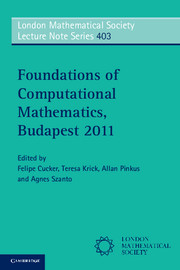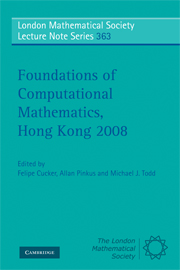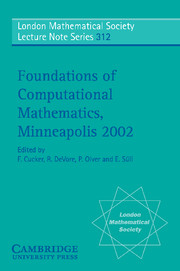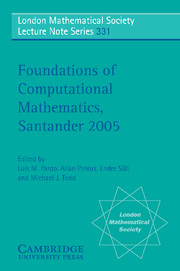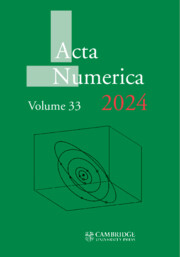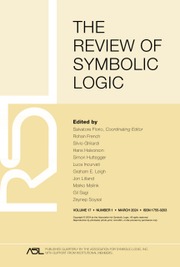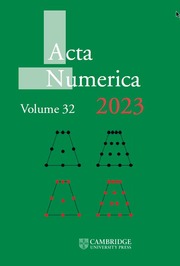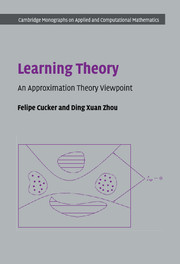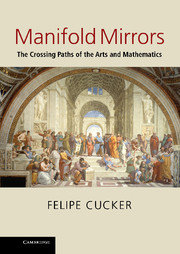Foundations of Computational Mathematics, Budapest 2011
The Foundations of Computational Mathematics meetings are a platform for cross-fertilisation between numerical analysis, mathematics and computer science. This volume is a collection of articles based on plenary presentations, given at the 2011 meeting, by some of the world's foremost authorities in computational mathematics. The topics covered reflect the breadth of research within the area as well as the richness of interactions between seemingly unrelated branches of pure and applied mathematics. As a result this volume will be of interest to researchers in the field of computational mathematics and also to non-experts who wish to gain some insight into the state of the art in this active and significant field.
- Chapters based on plenary talks given by world authorities
- Reflects the richness and diversity of computational mathematics
- Written to appeal to non-experts and to specialists
Product details
February 2013Adobe eBook Reader
9781139604451
0 pages
0kg
65 b/w illus.
This ISBN is for an eBook version which is distributed on our behalf by a third party.
Table of Contents
- Preface
- List of contributors
- 1. The state of the art in Smale's 7th problem C. Beltrán
- 2. The shape of data Gunnar Carlsson
- 3. Upwinding in finite element systems of differential forms S. H. Christiansen
- 4. On the complexity of computing quadrature formulas for SDEs S. Dereich, T. Müller-Gronbach and K. Ritter
- 5. The quantum walk of F. Riesz F. A. Grünbaum and L. Velázquez
- 6. Modulated Fourier expansions for continuous and discrete oscillatory systems E. Hairer and Ch. Lubich
- 7. The dual role of convection in 3D Navier-Stokes equations T. Y. Hou, Z. Shi and S. Wang
- 8. Algebraic and differential invariants Evelyne Hubert
- 9. Through the kaleidoscope: symmetries, groups and Chebyshev-approximations from a computational point of view H. Munthe-Kaas, M. Nome and B. N. Ryland
- 10. Sage: creating a viable free open source alternative to Magma, Maple, Mathematica and MATLAB W. Stein.

